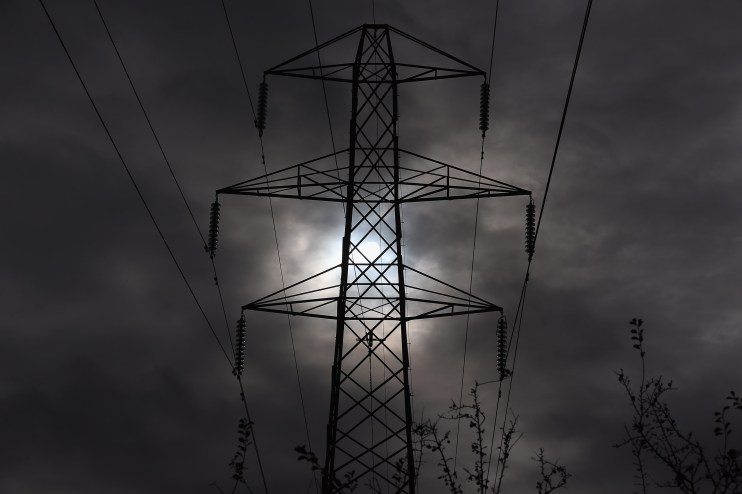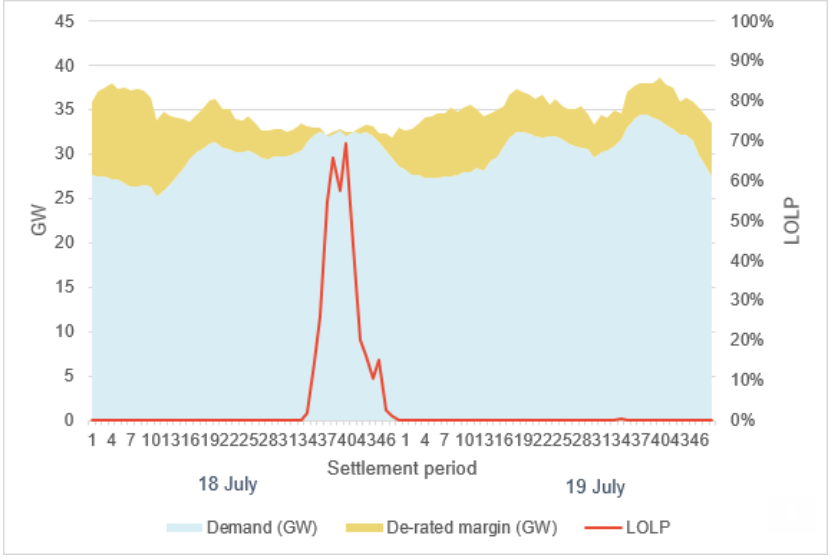National Grid blames fires and tight markets for desperate supply scramble amid heatwave

Tight markets and fires in East London forced the National Grid to pay record prices for energy from Belgium to prevent power outages during the hottest week of the year.
NGESO, the National Grid’s electricity systems operator, revealed that increased demand amid all-time high temperatures led to constraints in supplies in the capital.
There was also various planned maintenance outages with overhead lines.
A spokesperson said: “In order to keep the network secure in this region, we used the standard operating tools available to us, namely to import via interconnectors. We were bidding in a tight market and market prices were high that day because Europe also wanted the energy. We managed the system and kept the electricity flowing to the South East.”
This culminated with NGESO paying an all-time high of £9,724 per MWh last Wednesday, to import power from Belgium, according to data from market analyst EnAppSys – as first reported in The Telegraph.
It issued an emergency instruction to operators of the Nemo cable, running from the UK to Belgium, to make sure supplies were sent to the UK last week, after failing to secure enough in the normal market.
Two days of record-breaking temperatures last Monday and Tuesday put power supplies under strain – with temperatures climbing above 40C for the first time ever.
The strain triggered two automatic warning notices to the market last Monday calling for more generation to come online.
Energy specialist Cornwall Insight warned that demand came “very close” to outstripping supply.
Analyst Luke Ansell warned the market needed to be reformed to ensure supply shortages were not an increasing risk amid future heatwaves.
He said: “Rising temperatures across the UK and Europe are a concern as climate change threatens to make these weather occurrences more frequent. Over the next few years, the market will need to evolve to manage resources and deliver a flexible system capable of coping with what is likely to be a long-term issue.”

Analysts divided over cause of supply scramble
The scramble for supplies last week drew a mixed response from energy analysts, divided over potential solutions.
Dustin Benton, policy director at Green Alliance, told City A.M. the market was tight because Russia is rationing gas supplies.
In his view, the solution is to expand renewable energy in the UK, which is power generation that Russian President Vladimir Putin can’t control.
He said: “If the UK government had built the onshore wind and solar power that already has planning permission, we’d have reduced supply risks and saved £1.4 billion this year.” It’s also clear that investing in green energy is also the route to driving economic growth and creating more secure jobs across the country.”
By contrast, Andy Mayer, energy analyst at the Institute of Economic Affairs, argued that the Goverment’s decision to treat net zero as more important than affordability and security of supply had compromised the energy network, alongside the costs of connecting renewables.
He said: “When there are supply incidents, or when it’s too hot, cold, windy, or not windy enough, these issues combine, exposing us to an increased risk of controls and blackouts, reflected in short-term price spikes, or a ‘tight market’. The true horror of which is hidden in our network charges, while politicians claim incorrectly that renewables are cheap, by only reviewing the bid price of things not yet built. “
Meanwhile, the NGESO is set to publish its early forecast for power supply and demand for the coming winter, with heightened concerns over energy security owing to Russia’s war on Ukraine.